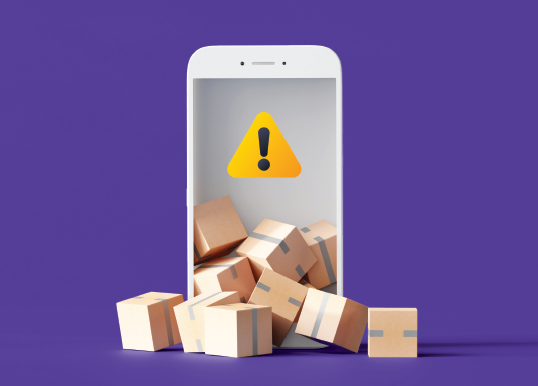- Reliable Neighbors
- 603-529-9911
Beware of Fake Delivery-Service Texts

 Scammers claim to be from USPS, FedEx, or UPS to steal from you
Scammers claim to be from USPS, FedEx, or UPS to steal from you
A growing number of Americans have received fake delivery-service texts that appear to be from a major delivery carrier, but are instead from scammers who are smishing — the term for scam attempts made via text, or SMS — for personal information and money.
According to the Federal Trade Commission, Americans reported $330 million in losses to text scams in 2022, more than double the reported losses from 2021. And fake delivery-service texts — with most mes-sages purportedly from USPS (U.S. Postal Service), FedEx, or UPS — were the third most reported type, behind fake bank texts and promises of free gifts or prizes.
Examples of These Scams
Most delivery-service texts start with an urgent message about delivering a package to your address and often include a “tracking link” that you’re urged to click in order to “update your delivery or payment preferences.” While these messages may look or sound legitimate, you should never click a link or call back the number from an unexpected delivery notice. Instead, contact the delivery service or seller directly using a verified number or website.
A link may open a website that prompts you to enter personal information, or it may install malware on your device that can secretly steal personal information. The number you call back may be answered by a scam “operator” asking to verify your account information or the credit card number you used for a purchase. Other scam calls and texts may claim you need to pay money before the delivery can be made.
Watch for the Warning Signs
While there may be some variations between the fake delivery-service texts, depending on which delivery carrier they claim to represent, look for these common “red flags.”
You receive notice about a problem with the delivery of your package when you haven’t made a tracking request.
For example, unless you explicitly sign up for status alerts on a package, you won’t receive a text from USPS. So, if you receive a text message citing one, it’s certainly a fake.
The message contains misspellings, awkward grammar, or excessive use of capitalization and exclamation points.
These are classic signs of a scam attempt. Keep in mind, how-ever, that with artificial intelligence and other advanced technology, scammers are becoming more sophisticated in their replication of legitimate business communications.
The text — and/or the website it leads you to — requests payment and/or seemingly unnecessary information.
You may be asked for a redelivery fee or a fee to release your shipment. The scammers may also request personal information such as your address, Social Secu-rity number, or credit card number.
The website address is slightly altered compared to the real one.
Instead of “fedex.com,” the scammers may use “fedx.com.”
There is no tracking number when there should be.
UPS says on its site, “If UPS contacts you regarding a package, the UPS representative will always be able to provide a tracking number, which you can verify on our website.”
How to Protect Yourself
To avoid becoming the victim of a fake delivery-service text, take these precautions:
- Don’t click on any link unless you can verify that it’s legitimate. Scammers are skilled at making their links look legitimate at first glance.
- If you’re suspicious of a tracking number, check it out. If the text cites a tracking number, copy and paste it into the search engine on the delivery service’s actual website. You’re likely to find it’s a fake.
- Go to the source. If you’re concerned that there might be a problem with a package you’re receiving or have sent, contact the delivery carrier directly, not through the link in the text.
In general, you should always be suspicious if you receive a message out of the blue asking for personal or financial information.